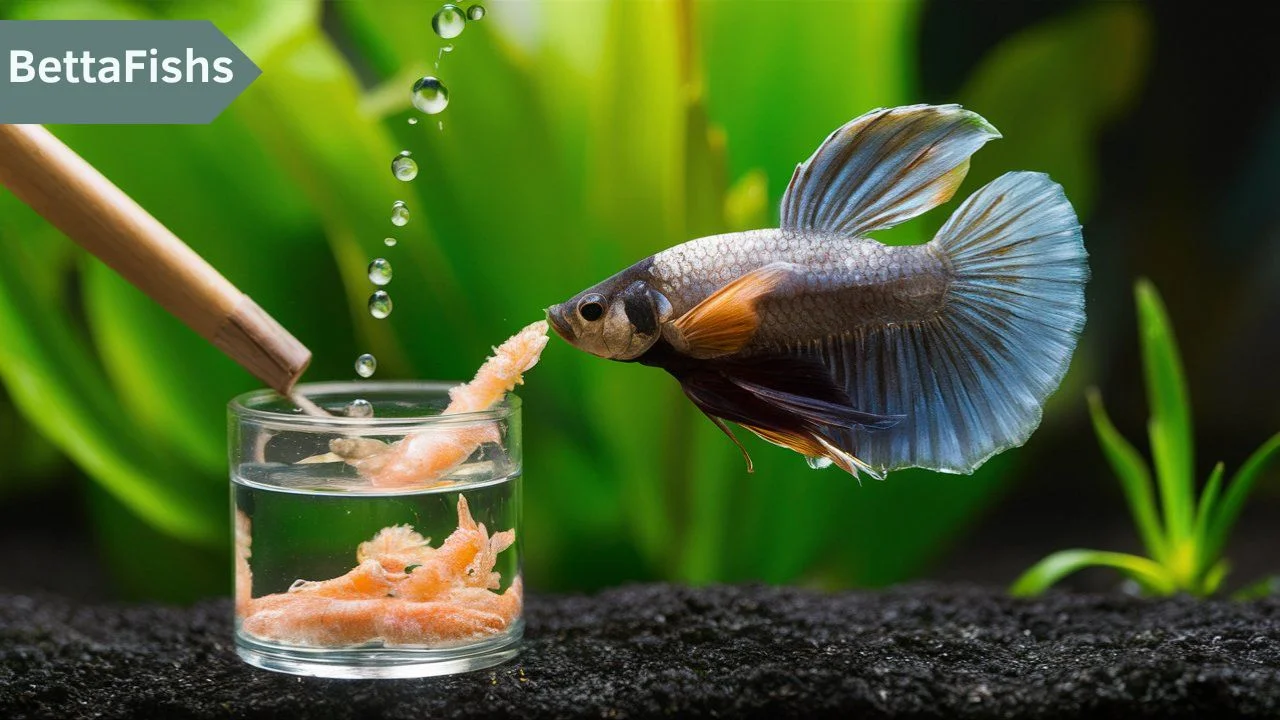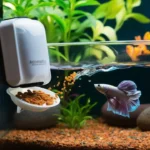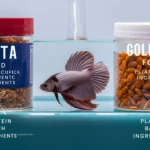If you’re a proud Betta fish owner, you know just how captivating and beautiful these little creatures are. Their vibrant colors and flowing fins make them one of the most popular choices for aquarium enthusiasts.
But to keep your Betta fish looking and feeling their best, you need to provide them with the proper nutrition. So, what is the best food for Betta fish? Let’s dive into the details to ensure your Betta is getting nutrients it needs.
Why Proper Nutrition is Crucial for Betta Fish
Proper nutrition is the cornerstone of a healthy Betta fish. Like any living creature, Betta fish require a balanced diet to maintain their energy levels, support growth, and enhance their vibrant colors. Poor nutrition can lead to a range of health issues, including weakened immune systems, dull colors, and even a shorter lifespan. By understanding your Betta’s dietary needs, you can ensure they thrive in their environment.
Overview of Betta Fish Dietary Needs
Betta fish are carnivorous by nature, meaning they require a diet rich in protein. Unlike some other fish species that may thrive on a primarily plant-based diet, Bettas need meat-based food to stay healthy. In the wild, Betta fish feed on small insects and larvae, so their diet in captivity should mimic this as closely as possible.
Betta Fish Natural Diet
Wild Betta Fish Eating Habits
In their natural habitat, Betta fish are opportunistic feeders. They primarily consume insects, insect larvae, and small crustaceans. This protein-rich diet is essential for their survival in the wild, providing them with the necessary nutrients to maintain their health, energy levels, and vibrant colors.
Differences Between Wild and Captive Betta Diets
While wild Betta fish have access to a variety of live food, captive Betta fish rely on the food provided by their owners. This means that it’s up to you to ensure that your Betta’s diet is as close to their natural diet as possible. While it’s not always feasible to provide live food, there are plenty of commercial and frozen options that can offer the necessary nutrients.
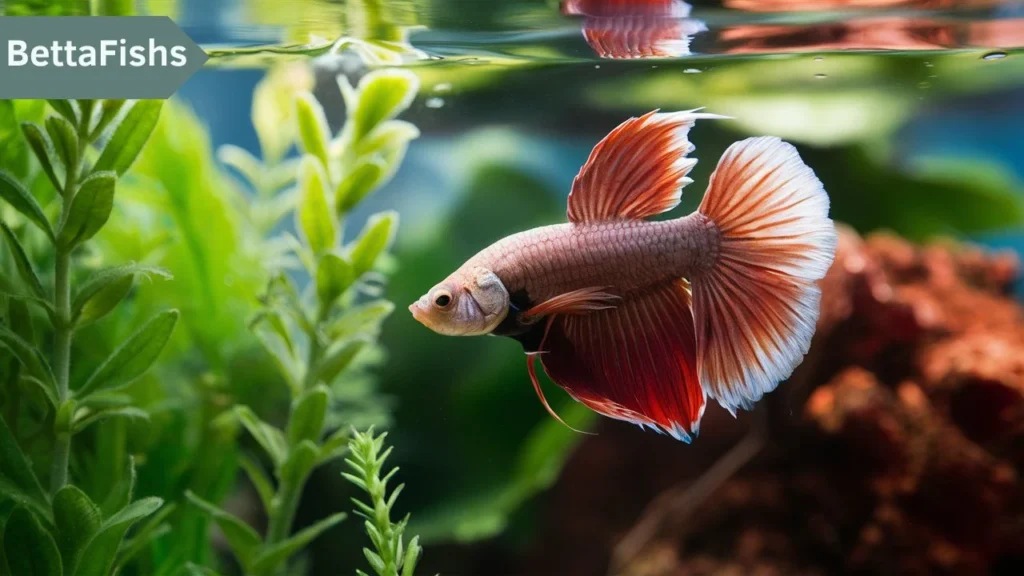
Types of Betta Fish Food
Commercial Betta Fish Food Options
When it comes to feeding your Betta, there are several commercial options available. These are specifically formulated to meet the dietary needs of Betta fish and are often enriched with vitamins and minerals to support their health.
Pellets
Pellets are one of the most common types of Betta fish food. They are designed to float on the water’s surface, mimicking the way Betta fish eat in the wild. Look for high-quality pellets that are specifically formulated for Betta fish, with a high protein content and minimal fillers.
Flakes
Flakes are another popular option, although they may not be as nutritious as pellets. Some Bettas may also be picky about flakes and refuse to eat them. If you choose flakes, make sure they are high in protein and specifically designed for Betta fish.
Freeze-Dried Food
Freeze-dried food, such as bloodworms or brine shrimp, can be an excellent treat for your Betta. These foods are high in protein and mimic the natural diet of Bettas. However, they should not be the primary food source as they can expand in the Betta’s stomach, leading to bloating.
Live Food for Betta Fish
Live food is the closest you can get to your Betta’s natural diet. It is packed with protein and can provide mental stimulation for your Betta as they hunt for their food.
Brine Shrimp
Brine shrimp are a popular live food option for Betta fish. They are simple to grow at home and high in protein. Feeding your Betta live brine shrimp can enhance their colors and overall health.
Bloodworms
Bloodworms are another excellent live food option. They are a healthy treat because they are high in fat and protein. However, due to their high-fat content, bloodworms should be fed sparingly.
Daphnia
Daphnia, also known as water fleas, are small crustaceans that are a great source of protein and fiber for Betta fish. They are particularly useful in preventing constipation and promoting healthy digestion.
Frozen Food for Betta Fish
Frozen food is a convenient alternative to live food. It offers the same nutritional benefits without the hassle of keeping live creatures in your home.
Pros and Cons of Frozen Food
The main advantage of frozen food is its convenience and long shelf life. It also reduces the risk of introducing parasites into your tank, which can be a concern with live food. However, some Bettas may be less enthusiastic about frozen food compared to live food.
How to Properly Prepare Frozen Food
To prepare frozen food for your Betta, simply thaw the required amount in a cup of aquarium water before feeding. It’s important not to overfeed, as uneaten food can quickly pollute the tank.
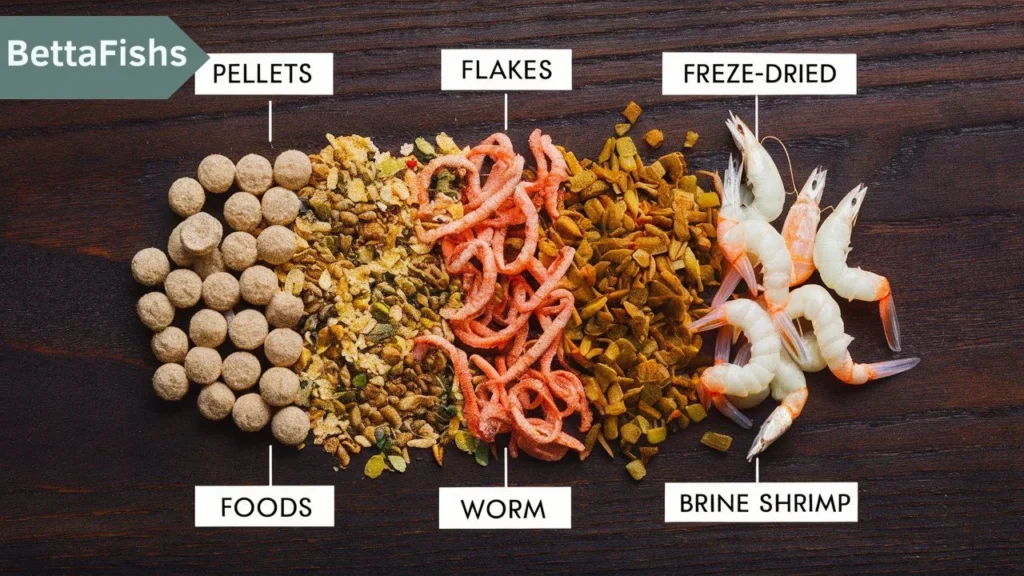
How to Choose the Best Food for Your Betta Fish
Reading the Ingredients
When choosing commercial Betta food, always check the ingredients list. The first ingredient should be a high-quality protein source, such as fish meal or shrimp meal. Avoid foods that list fillers like wheat or corn as the primary ingredients.
Understanding Protein Content
Betta fish require a diet that is at least 30-40% protein. Higher protein content is generally better, as it more closely resembles their natural diet. Ensure the food you choose meets this requirement.
Avoiding Fillers and Unnecessary Additives
Fillers like wheat, corn, and soy offer little nutritional value to Betta fish and can lead to digestive issues. Additionally, avoid foods with artificial colors and preservatives, which can be harmful to your Betta’s health.
Homemade Betta Fish Food
Benefits of Making Your Own Betta Food
Making your own Betta fish food allows you to control the ingredients and ensure that your Betta is getting the highest quality nutrition. It can also be a fun and rewarding way to bond with your Betta.
Safe Ingredients to Use
When making homemade Betta food, focus on high-protein ingredients like shrimp, fish, and chicken. You can also include small amounts of vegetables like peas and spinach, which are good for digestion.
Recipes for Homemade Betta Fish Food
A simple homemade Betta food recipe might include finely chopped shrimp mixed with a bit of boiled spinach. Freeze the mixture in small portions, and thaw before feeding.
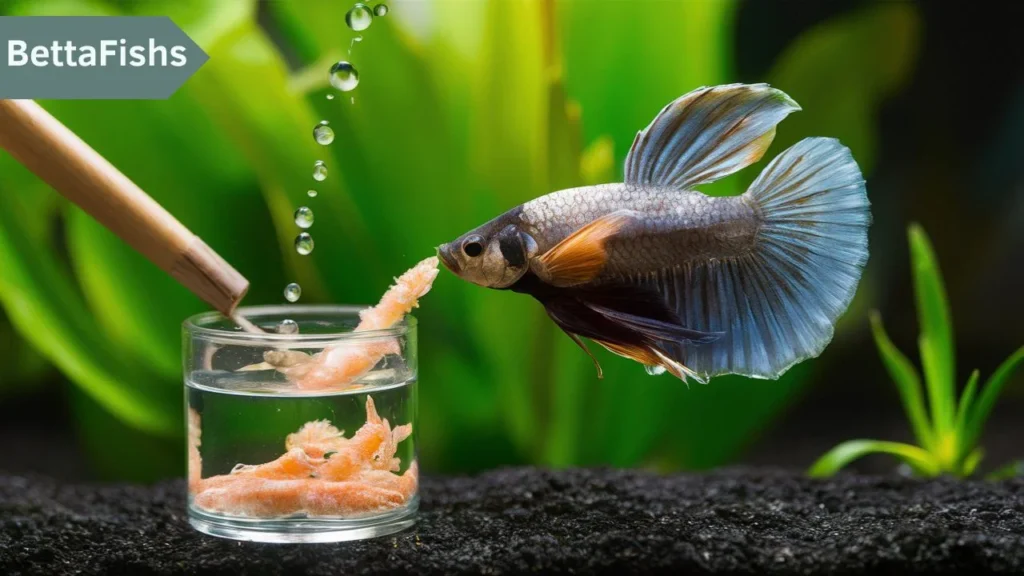
Conclusion
Feeding your Betta fish the right food is crucial for their health and happiness. By providing a diet rich in protein and mimicking their natural eating habits, you can help your Betta thrive. Remember to choose high-quality food, avoid common feeding mistakes, and maintain a regular feeding schedule. With the right care and nutrition, your Betta fish will live a long, vibrant life.
FAQs
Can Betta Fish Eat Human Food?
While some human foods like cooked peas can be fed to Betta fish in small amounts, it’s generally not recommended to feed them human food. Stick to food specifically designed for Betta fish to ensure they get the nutrients they need.
What Should I Do if My Betta Won’t Eat?
If your Betta refuses to eat, try offering a different type of food, such as live or frozen options. If the problem persists, it could be a sign of illness, and you should consult with a veterinarian.
Is It Okay to Feed My Betta Only Pellets?
Pellets can be a good staple diet for Betta fish, but it’s also beneficial to supplement their diet with live or frozen food to provide variety and additional nutrients.
How Long Can Betta Fish Go Without Food?
Betta fish can typically go up to 1-2 weeks without food, but this is not recommended. Regular feeding is important for their health and well-being.
What’s the Best Way to Store Betta Fish Food?
Store Betta fish food in a cool, dry place, away from direct sunlight. If you buy in bulk, consider storing portions in the freezer to maintain freshness.


